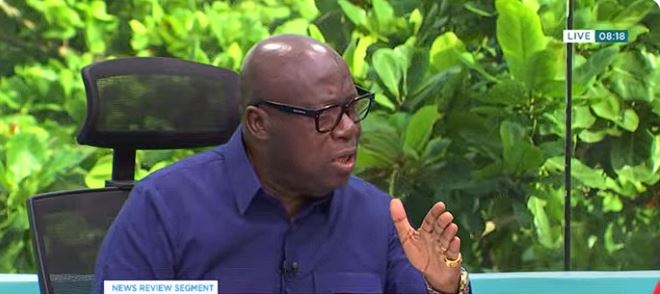The political landscape in Ghana has been ignited by the suspension of Chief Justice Gertrude Torkornoo, sparking a heated debate between the ruling National Democratic Congress (NDC) and the opposition New Patriotic Party (NPP). Joseph Ade Coker, former Greater Accra Regional Chairman of the NDC, has vehemently dismissed the NPP’s protests against the suspension, labeling them as “childish” and inconsequential political theatrics. He firmly maintains that the government has adhered to due process in handling the matter and that President Mahama remains steadfast in upholding the constitutional provisions governing the judiciary. This stance underscores the NDC’s position that the suspension was not a politically motivated act but a necessary step taken in accordance with established legal procedures.
The NPP, however, has taken a diametrically opposed view, organizing a protest and presenting petitions to the Presidency, Parliament, and the Judiciary, demanding the reinstatement of Chief Justice Torkornoo. They argue that the suspension undermines the independence of the judiciary and sets a dangerous precedent for political interference in judicial affairs. The NPP’s protest signifies their deep concern over what they perceive as an overreach of executive power and a threat to the delicate balance of power between the branches of government. This clash of perspectives highlights the fundamental disagreement between the ruling party and the opposition regarding the legitimacy and justification for the Chief Justice’s suspension.
At the heart of this controversy lie the petitions submitted by private citizen Daniel Ofori, police officer Ayamga Akolgo, and civil society group Shining Stars of Ghana, which led to the establishment of a prima facie case against Chief Justice Torkornoo and her subsequent suspension. The nature of the allegations remains undisclosed, adding to the intrigue and speculation surrounding the case. The formation of a five-member committee to investigate these allegations, as mandated by Article 146(6) of the 1992 Constitution, is intended to ensure a thorough and impartial examination of the evidence. However, the NPP’s skepticism regarding the government’s intentions casts a shadow over the proceedings, raising concerns about potential bias and the integrity of the investigative process.
Ade Coker’s assertion that the NPP’s protests are “childish” reflects the NDC’s confidence in the legality and propriety of their actions. He emphasizes that the government is committed to upholding the rule of law and respecting the constitutional framework governing the judiciary. This unwavering stance suggests that the NDC is prepared to weather the political storm and defend its decision to suspend the Chief Justice. The NPP’s counter-argument, however, paints a picture of a government abusing its power and undermining the independence of a critical branch of government. This stark contrast in interpretations underscores the deep political divide and the potential for further escalation of tensions.
The suspension of Chief Justice Torkornoo has set the stage for a protracted political battle between the ruling NDC and the opposition NPP. The outcome of the investigation by the five-member committee will undoubtedly have significant implications for the future of the judiciary and the political landscape of Ghana. The NPP’s continued protests and demands for reinstatement indicate their determination to challenge the government’s actions and advocate for what they perceive as the protection of judicial independence. The NDC, on the other hand, remains resolute in its defense of the suspension, portraying it as a necessary step taken within the bounds of the constitution.
This unfolding political drama in Ghana raises critical questions about the balance of power, the independence of the judiciary, and the role of political protests in a democratic society. The clash between the NDC and the NPP over the suspension of Chief Justice Torkornoo serves as a microcosm of the broader political tensions and power dynamics within the country. The outcome of this case will not only determine the fate of Chief Justice Torkornoo but also shape the future of judicial independence and the relationship between the different branches of government in Ghana. The international community will be watching closely as this situation unfolds, observing the impact on democratic principles and the rule of law in the West African nation.














